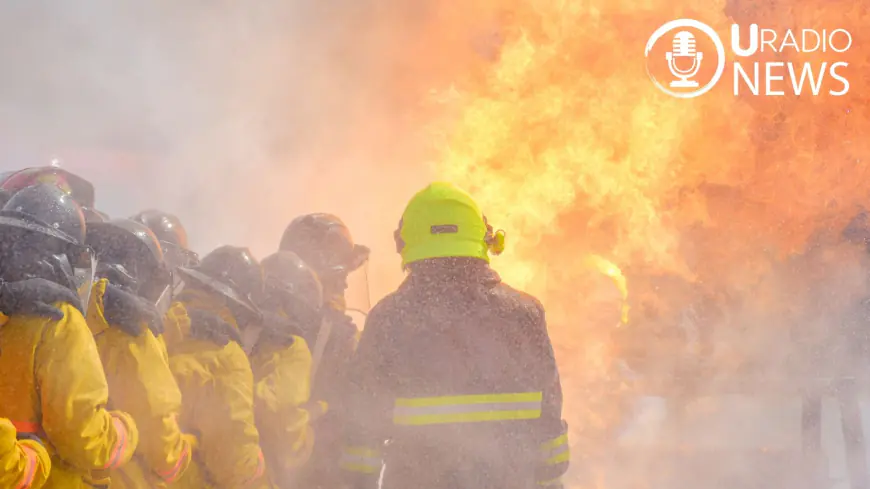Cancer is the leading cause of job-related deaths for firefighters in Canada. The Canadian government has introduced a National Framework on Cancers Linked to Firefighting to address the elevated cancer risks firefighters face. This framework will be supported by an investment of $12.29 million over five years and $12.29 million over five years with $220,000 ongoing.
Scott Wilkinson, Deputy Chief of Fire Rescue Operations and Training with Winnipeg Fire Paramedic Service (WFPS) says this funding for research and prevention is a positive step in protecting first responders.
“We do have presumptive legislation for cancers here in Manitoba and many other jurisdictions across North America. The problem with presumptive is that although it’s great coverage, you already have to get cancer to get it. We’re really focused on prevention and trying to find research that allows us to limit the amount of exposure so people don’t get those cancers.”
Firefighters face exposure to carcinogens, toxic chemicals, and particulates that can have serious long-term health consequences. The International Agency for Research on Cancer (IARC) has classified occupational exposure for firefighters as a cancer risk, with strong evidence linking it to mesothelioma and bladder cancer. There is also limited evidence connecting this exposure to colon, prostate, and testicular cancers, skin melanoma, and non-Hodgkin lymphoma. According to the Government of Canada, firefighters are nine per cent more likely to be diagnosed with cancer and face a 14 per cent higher risk of cancer-related death compared to the general population.
Wilkinson notes that conversations on prevention and protection have come a long way in the past few decades. For many years, firefighters would wear their gear for a while before washing them, and sometimes, that gear would sit next to them, unwashed, in the dorm rooms at night. But since then, major changes have been made.
“We’ve been very active here at the Winnipeg Fire Paramedic Service on cancer mitigation, including various options such as protective equipment, procedures and policies, and even our industry-leading gear washing programs to prevent the transfer of carcinogens from the turnout gear our firefighters wear to themselves.”
Part of the new federal announcement funding will go toward establishing a National Firefighter Cancer Registry. Statistics Canada will lead the Registry in tracking health outcomes over time. Wilkinson believes this will bring attention to and inform the issues as well.
Cancers are one of many long-term health-related risks fighterfighters face. The intense labour involved can lead to back injuries and other strains, rescuing bleeding victims increases the risk of diseases such as AIDS and hepatitis, and exposure to toxic substances can lead to cardiovascular disease. “Equipment and our practices have evolved remarkably over the years,” Wilkinson notes, “to the point where hopefully things like presumptive legislation won’t be required decades down the road because we’ve done the work on the front end.”
While focusing on prevention and treatments for physical health is important, mental health is equally so. Wilkinson says it has taken decades to normalize discussions on mental health, and there’s tremendous effort in removing that stigma.
“It’s still an ongoing conversation. Here at the WFPS, we’ve had a great level of peer support from our internal team for many decades. More recently, our behaviour health unit where we have direct access to informed clinicians, and that’s really making a big difference.”
For both physical and mental health wellness, this new funding and ongoing conversations and support are great steps for improving safety and the lives of first responders. However, Wilkinson says there’s still a lot of work to be done with increased calls, acts of violence and situations encountered on the streets. “It’s societal,” explains Wilkinson, “we need to work together to resolve some of the issues we have in society.”
Homelessness, mental health access, and addiction services are a few areas Wilkinson says need to be addressed. Through community collaboration, Wilkinson believes a lot of the incidents firefighters are seeing would be reduced, ensuring first responders and everyone in the community are safe.
– Ryan Funk, U Multicultural















































































































